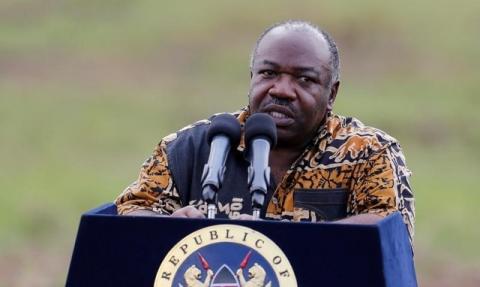Advertisement
Gabon increases security after court upholds Bongo poll win
LIBREVILLE (Reuters) - Gabon's government deployed a heavy security presence in the capital Libreville on Saturday in an attempt to head off potential unrest following a Constitutional Court ruling certifying the election victory of President Ali Bongo.
Six people were killed early this month in riots that followed the interior ministry's declaration of a slim victory in the Aug. 27 poll for Bongo, whose family has ruled the central African oil producer for nearly half a century.
Opposition leader Jean Ping, who has said up to 100 people died in the violence, has declared that he won the election and challenged the result, claiming fraud.
Trucks full of police and soldiers, some of them equipped with riot gear, were positioned at crossroads and roundabouts across the capital from early morning.
There was less traffic than usual in the city centre as many residents decided to stay at home. However, there were no reports of unrest.
"I'm glad there is no war. We need the politicians to talk. We want a calm country," said Arnel Sama, 40, an unemployed resident of Libreville, expressing relief that the court ruling had not immediately sparked renewed unrest, as many had feared.
The decision had been read late on Friday night in an almost empty court chamber. Shortly afterwards, Bongo made a plea for political dialogue to bring together his allies and opponents to work in the country's best interest.
However, there was no immediate indication that Ping was prepared to accept talks.
"This is a hard situation for the country, and we need to take time to think and respond correctly," said Henri Elang, a member of Ping's entourage, who said he was speaking on behalf of the candidate.
Ping, a lifelong political insider in Gabon who has also served as chairman of the African Union Commission, was in meetings with advisors on Saturday and declined to comment directly on the court ruling.
In his petition to the court, Ping had alleged fraud in Haut-Ogooue province, where Bongo won 95 percent on a turnout of 99.9 percent.
A European Union election observer mission said it had also uncovered anomalies in the province's results.
The court agreed to re-examine the results there with the monitoring of judges sent by the African Union, but it refused to accept copies of vote tally sheets provided as evidence by Ping, stating he had failed to prove their legitimacy. Many tally sheets, it said, were illegible.
The court cancelled results from 21 polling stations in Libreville over irregularities, helping Bongo to improve his margin of victory from 49.85 percent of ballots cast to 50.66 percent in the final court-certified result.
"It is a masquerade. The Constitutional Court insulted the people and did not respect democracy," said Clay Martial, an opposition supporter who went to Ping's headquarters on Saturday.
(Additional reporting by Gerauds Wilfried Obangome; Writing by Joe Bavier; Editing by Andrew Bolton)



















Add new comment